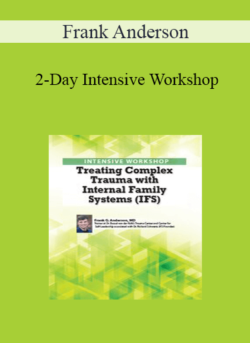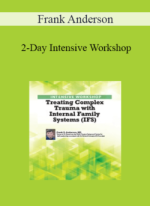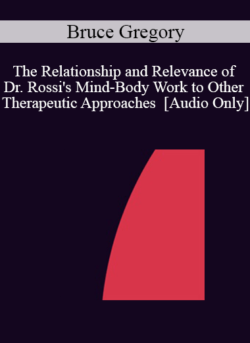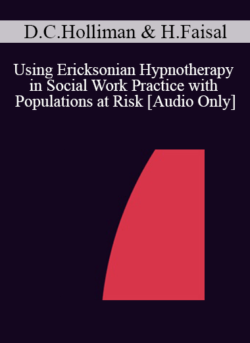[Instant Download] – Immediately deliver the download link after receiving the paymentPurchase Frank Anderson – 2-Day Intensive Workshop: Treating Complex Trauma with Internal Family Systems (IFS) courses at here with PRICE $439.99 $83Faculty:Frank AndersonDuration:12 Hours 31 MinutesFormat:Audio and VideoCopyright:Sep 10, 2020 Manual – 2-Day Treating Complex Trauma with IFS (2.57 MB) 70 Pages Available after Purchase Outline Treating the Various Types of TraumaAcute traumaPTSDComplex or relational traumaDevelopmental and attachment traumasExtreme or dissociative traumaInternal Family Systems (IFS): Healing of Emotional WoundsThe origins, goals & assumptionsA non-pathologizing, accelerated approach, rooted in neuroscienceDifferent from phase-oriented treatmentThe importance of our protective responsesDeal with emotional overwhelm head-onMultiplicity of the mind – we all have partsHealing at the cellular levelStudy limitations: small sample size, no control groupClinical considerations for clients experiencing abuseManage Common Co-MorbiditiesDepression, panic attacks, substance abuse, eating disorders, ADD and OCDA non-pathological approachComorbidities as protective responses to traumaSymptoms as “parts of the self”Differentiate Therapeutic Issues from Biological ConditionsIntersection of biology and situation (“Real Mind-Body Medicine”)Therapist’s role in biology – When to refer and when to work it throughPsychotherapy of psychopharmacologyThe IFS Technique Step 1: Identify the Target SymptomIdentify the “target symptom”Apply meditation practicesSeparate the person (self) from the symptomLearn about its intentionStep 2: Gain Access to Internal Strengths & Resource for HealingMove from defensiveness to curiosityThe “Self” of the therapist-countertransference redefinedAccess compassion to open the pathways toward healingRole of empathy in healing – the benefits and the downsidesStep 3: Find the Fear and Function of the Symptom Focusing on its fearThe real story behind the symptomFoster the internal relationshipAttachment Disorders and Relational Trauma IFS as internal attachment workAttachment styles as parts of selfAttachment trauma – the role of the therapistHeal relational wounds of childhoodClient’s “Self” as the corrective objectWork with preverbal traumaThe Neurobiology of Trauma Neuroscience for therapists – what you need to knowFear circuitry and the development of PTSDExtreme reactions and Autonomic Nervous SystemRage to suicide and dissociation to shameDealing with the Extreme Reactions of Trauma Talk directly to the symptom-direct accessIntroducing the part to the “Self”Deal with the overwhelm – no need for building resourcesTherapist parts – How to stay clear and calm while working with clients in extreme statesHow Neuroscience Informs Therapeutic Decisions Top-down and bottom-up strategies rooted in neuroscienceWhen it’s necessary to take over and “be the auxiliary brain” for your clientSensing vs. making sense of thingsAt home strategiesStep 4: Healing of Traumatic Wounds: Three phases to healing:Witness the painRemove the wounded part out of the pastLet go of the feelings, thoughts and beliefsScience behind the healing – memory reconsolidationIntegrate IFS into Your Treatment Approach EMDR, DBT, Sensorimotor/SE and other methodsTransformation vs adaptation or rehabilitationGoing beyond the cognitive (experiential therapies)Integrate IFS with your current clinical approachLive demonstrations MeditationsPractice sessions Faculty Frank Anderson, MD Related seminars and products: 18 Frank Anderson, MD, completed his residency and was a clinical instructor in psychiatry at Harvard Medical School. He is both a psychiatrist and psychotherapist and specializes in the treatment of trauma and dissociation. He is passionate about teaching brain-based psychotherapy and integrating current neuroscience knowledge with the IFS model of therapy.Dr. Anderson is a lead trainer at the IFS Institute with Richard Schwartz and maintains a long affiliation with, and trains for, Bessel van der Kolk’s Trauma Center. He serves as an advisor to the International Association of Trauma Professionals (IATP) and was the former chair and director of the Foundation for Self-Leadership.Dr. Anderson has lectured extensively on the Neurobiology of PTSD and Dissociation and wrote the chapter “Who’s Taking What” Connecting Neuroscience, Psychopharmacology and Internal Family Systems for Trauma in Internal Family Systems Therapy – New Dimensions. He co-authored a chapter on “What IFS Brings to Trauma Treatment in Innovations and Elaborations in Internal Family Systems Therapy” and recently co-authored Internal Family Systems Skills Training Manual.Dr. Anderson maintains a private practice in Concord, MA.Speaker Disclosures:Financial: Frank Anderson maintains a private practice. He receives a consulting fee from the Center for Self Leadership. Dr. Anderson receives a speaking honorarium from PESI, Inc.Non-financial: Frank Anderson is the President of the Foundation for Self Leadership. Salepage: https://catalog.pesi.com//item/2day-intensive-workshop-treating-complex-trauma-internal-family-systems-ifs-68701Archive: https://archive.ph/wip/75fG0Purchase Frank Anderson – 2-Day Intensive Workshop: Treating Complex Trauma with Internal Family Systems (IFS) courses at here with PRICE $439.99 $83
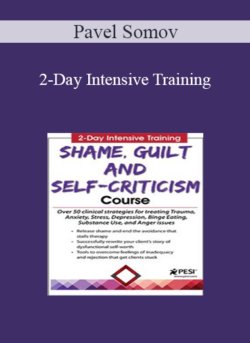 Pavel Somov – 2-Day Intensive Training: Shame, Guilt and Self-Criticism Course
₹13,778.00
Pavel Somov – 2-Day Intensive Training: Shame, Guilt and Self-Criticism Course
₹13,778.00
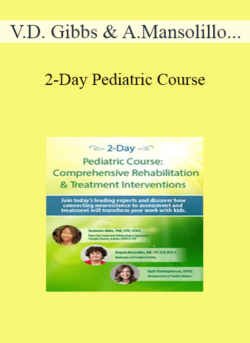 Varleisha D. Gibbs, Angela Mansolillo, April Christopherson – 2-Day Pediatric Course: Comprehensive Rehabilitation & Treatment Interventions
₹13,778.00
Varleisha D. Gibbs, Angela Mansolillo, April Christopherson – 2-Day Pediatric Course: Comprehensive Rehabilitation & Treatment Interventions
₹13,778.00
Frank Anderson – 2-Day Intensive Workshop: Treating Complex Trauma with Internal Family Systems (IFS)
₹13,778.00

